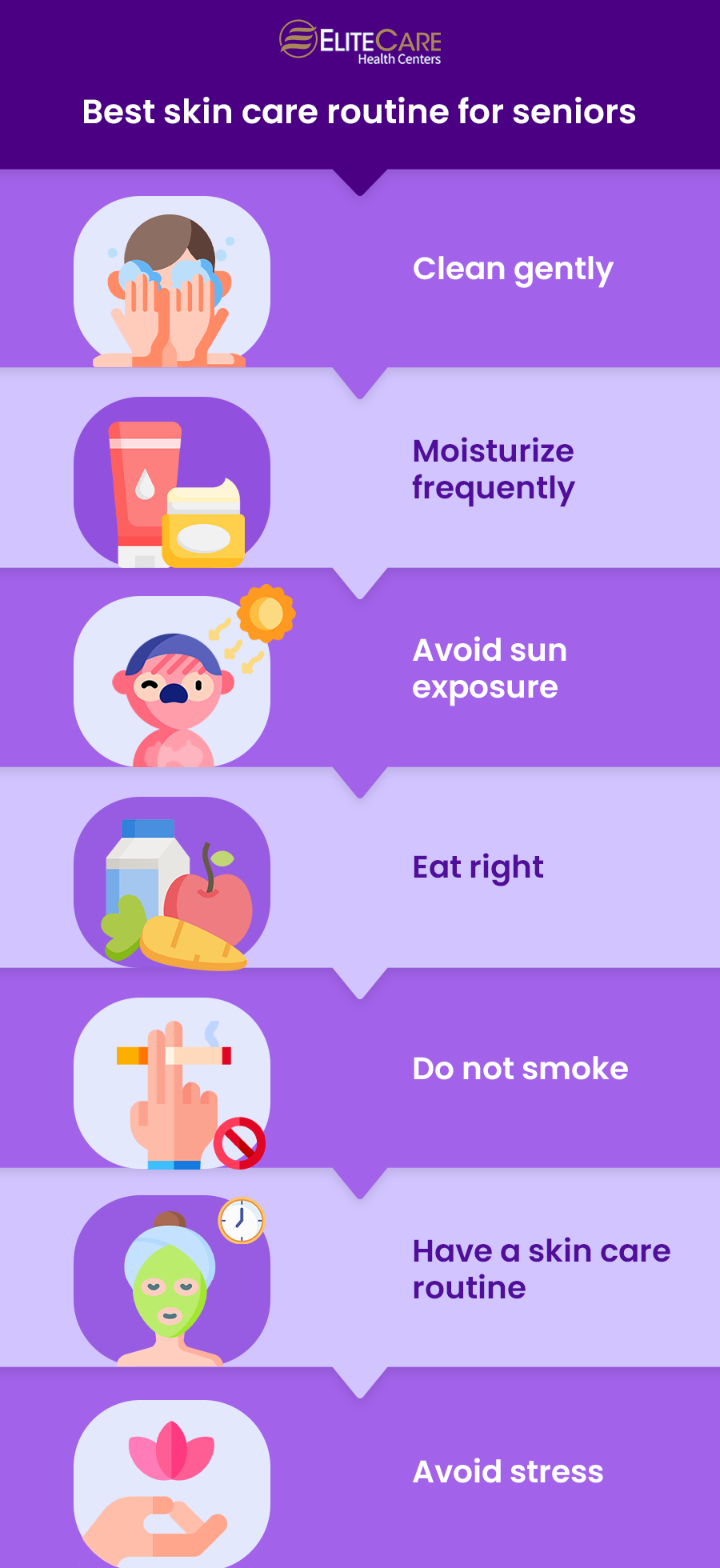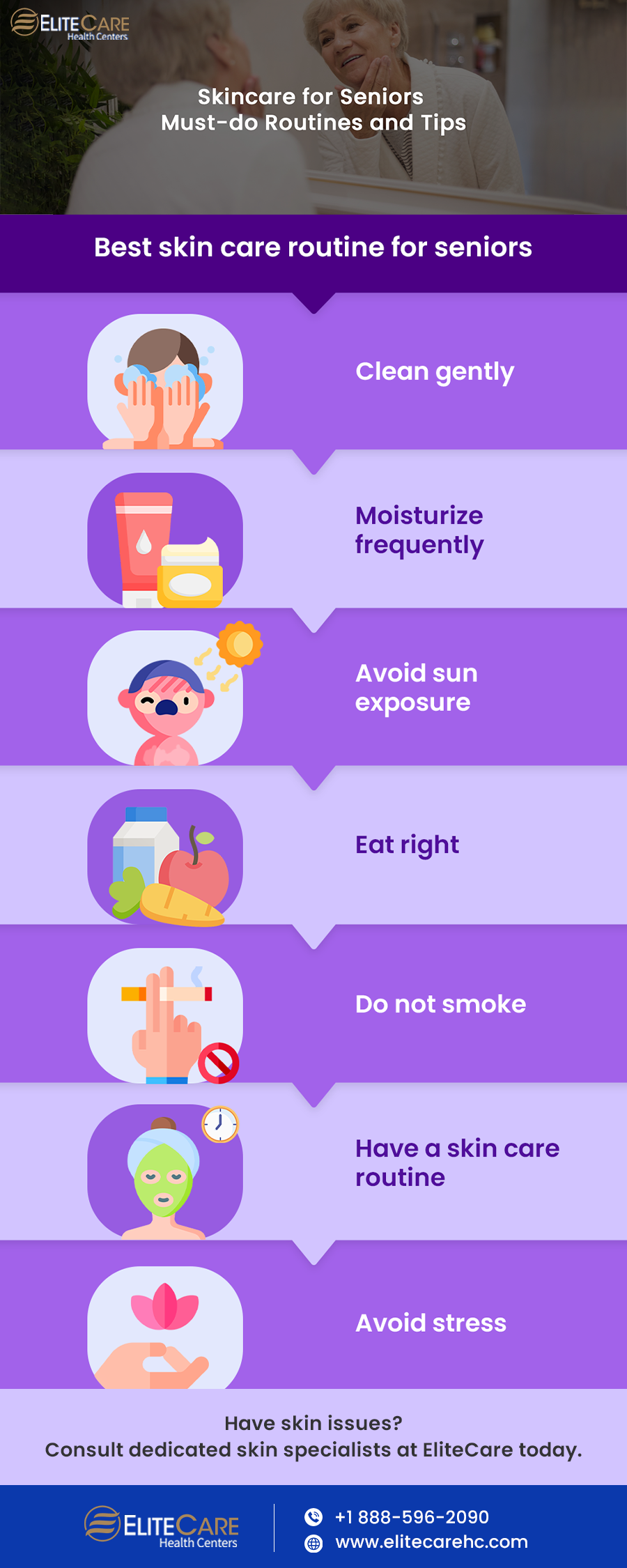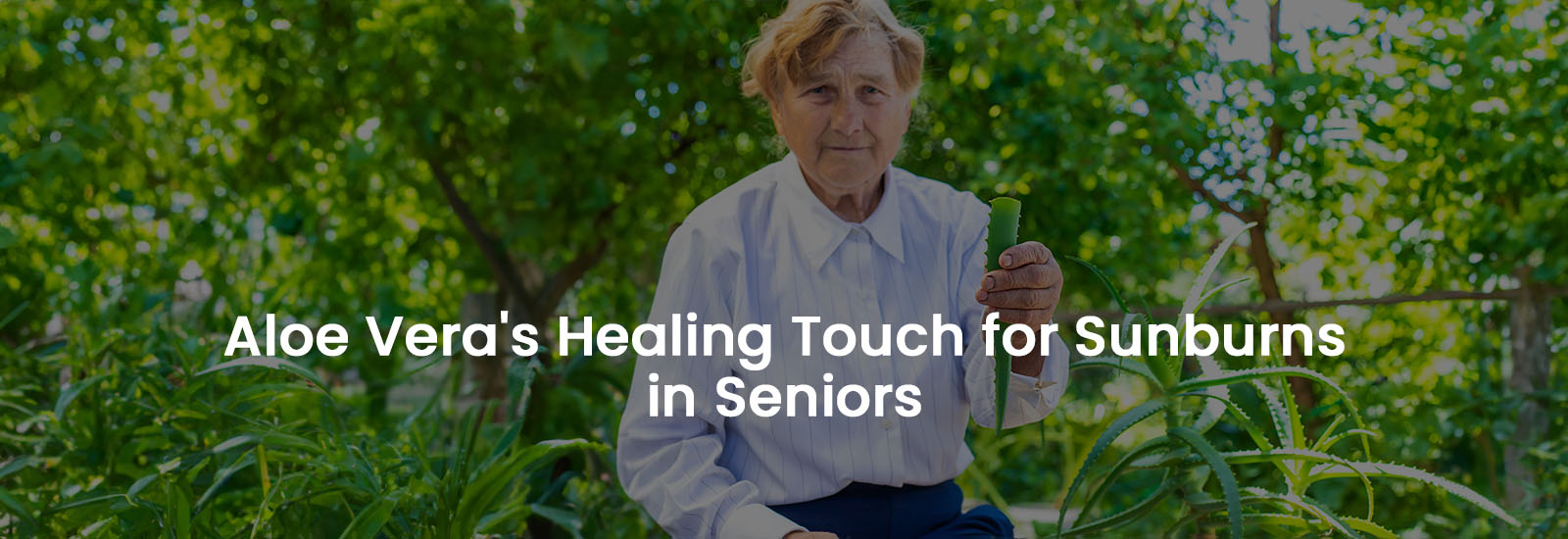
The skin matures as we get older. It is common for seniors to have dry skin because the skin gets thinner and more brittle with time. This is because the oil-producing sebaceous glands are less able to efficiently hydrate the skin. Senior lifestyle, nutrition, heredity, outdoor exposure, personal habits, and even a sleeping position impact the skin. As a result, it is usual to experience the following skin changes in later years of life:
- Itchiness
- Dryness
- Thinning
- Wrinkles & age spots
- Bruising easily
- Slower healing
It’s obvious then that the skin will require more than a little extra care with age.
Dermatologists advise the following best skin care routine for seniors:

1. Clean gently
The natural oil production of mature skin is relatively low. By gently washing the skin with plain water, it is possible to prevent further drying. It is acceptable to wash once a day. Avoid taking too many baths or showers, and wash with warm water instead of hot. Instead of using harsh soaps and alcohol-based solutions, use mild gel-based cleansers. Stay away from bath oils because they make the bathtub slick and slippery and can increase the risk of slipping and falling.
2. Moisturize the skin frequently
Skin amongst the elderly is dry and often sensitive. Conditions like diabetes or kidney issues can occasionally be the reason. Sometimes older people do not consume enough water leading to dehydration and dry skin. To help stop the cracking and itching that can accompany dry skin, consider using a rich but fragrance-free moisturizer. Stop the “itch-scratch-itch” cycle by doing this. And always stay hydrated.
3. Don't overexpose yourself to the sun
According to the CDC, most skin cancer cases are reported in adults over age 65.
Too much ultraviolet (UV) ray exposure from the sun is a risk factor for most skin malignancies. Making sun protection a daily routine can help people avoid sunburn and reduce their risk of developing skin cancer.
Limit sun exposure between 10 a.m. and 4 p.m. Remember: Sunburn can still occur even when the sky is cloudy or in water. Use a broad-spectrum sunscreen with at least a 15 SPF rating. Apply it 15 to 30 minutes before leaving the house and reapply every two hours. Avoid tanning beds, tanning tablets, and sunlamps.
4. Eat well, drink well
Eating balanced, healthy meals is excellent for the skin. Dermatologists say that omega-3 fatty acids help to keep the skin hydrated and meals containing flax seeds and walnuts can help deliver these nutrients to the body. In addition, elderly people should consume vegetables in a variety of ways to benefit their bodies. Vitamins B, K, C, E, and selenium can all significantly increase the skin’s softness.
Be sure to drink enough water. The skin also dries up from dehydration, which increases skin damage.
5. No smoking
6. Maintain a simple skin routine.
Dermatologists advise keeping skincare regimens straightforward. Irritation can result from over scrubbing, over-exfoliating, and overapplying products. A decent rule of thumb is to limit yourself to using an appropriate sunscreen, a cleanser, and a moisturizer—three basic things that will make a difference.
7. Reduce stress
Summing up
Even though it may feel that skin care is more difficult with age, with the help of consistent practices mentioned above, it is possible to preserve your skin. Every blemish or flaw simply proves that you have survived. When you love yourself energetically, your face and body will reflect that. In case skin conditions worsen or cause concern, contact a center for wellness or a dermatologist.






